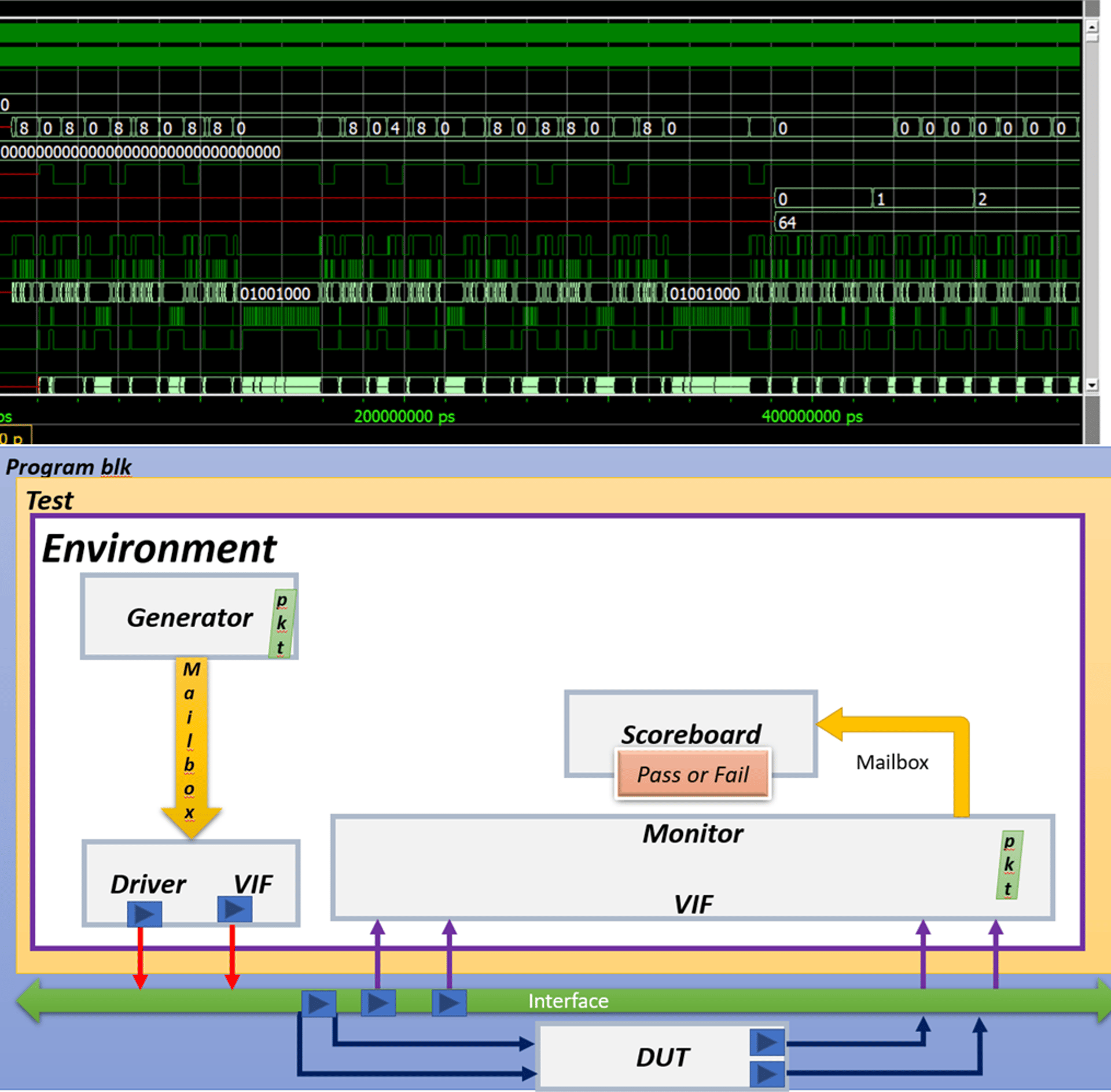
Advanced Design Verification
Explore Verification concepts through hands-on projects and expert guidance in UVM verification.
Eligibility
Overview
The Advance Digital Design course is structured to provide practical experience in designing and creating a smarter testbench of complex design and bus protocols.
B.Tech/Diploma in EEE, ECE & EIE pursuing or completed.
M.E/M.Tech/M.S in VLSI/Embedded/Any other specialization.
Working Professionals.
Any one curious!
Mode of Study
Online Mode.
Offline Mode (Kolkata, West Bengal).
Learning Outcomes
Mastering the art of designing the circuit on a piece of paper and verifying it with UVM.
Key Course Features
Demo class Available.
Job assistance and tool support.
Industry live projects under the supervision of 12+ experienced trainer.
Course material, hand-outs, quizzes, assignments to assist in learning.
Course Features
Duration - 4 to 6 Months
Skill Level - Advance
Language - English
Assessments - Yes
Job assistance - Available
Curriculum
Advance Digital Design using Verilog.
System Verilog for Verification.
UVM Methodology.
Projects.
Bash Scripting.
Advance Digital Design using Verilog
Introduction to the course.
Basic Digital Electronics.
Advance Digital Design on Paper.
Introduction to HDL (Verilog).
Project HMS counter.
Functions/Tasks, Operators, Race conditions.
Verilog event regions, Stratified event queue.
Projects 2 - FSM based UP-Down counter, Mod 4 Mod 5 counter, FIFO design (Unique approach!).
System Verilog for Verification
Introduction to the Course, Why System Verilog?
SV data types, Interface, Program block.
SV event region, TB and RTL race condition, self-checking TB.
OOPs, Class, inheritance, Polymorphism.
Randomization, Constraints, Inter process communication.
Implementing self-checking TB in pure verilog for D flip-flop.
What is static class ? How to implement Singleton object.
Code/Functional Coverage.
UVM Methodology
Introduction to the Course, UVM environment, UVM Messaging.
UVM transaction.
UVM Phasing.
UVM sequence, UVM configuration, uvm_config_db.
UVM TLM port, UVM Scoreboard, uvm_inorder_class_comparator.
UVM Testbench (Phase, Driver, Monitor, Agent, Scoreboard, Environment, Comparator, Test).
UVM DPI.
Projects
Verification Environment of CSR (Control and Status register) based memory model.
Creating a self-checking testbench in UVM for APB based slave memory.
Introduction to AXI Lite bus protocol.
Scripting
Shell commands. Grep, AWK, SED, FIND, Pipe (|) usages.
Introduction to Bash.
Using Makefile to automate/streamline the compile, elaboration and simulation stage.
Automated repot generation.
Creating a TB infra and understand how regression works.
Above units will be updated based on the latest industry related projects and interview questions.
Contact +91 9435136663 for offers!
Course Fee
Innovate
Join us to transform your VLSI career today.
Contact
Follow
+91 9435136663
© 2025. All rights reserved.